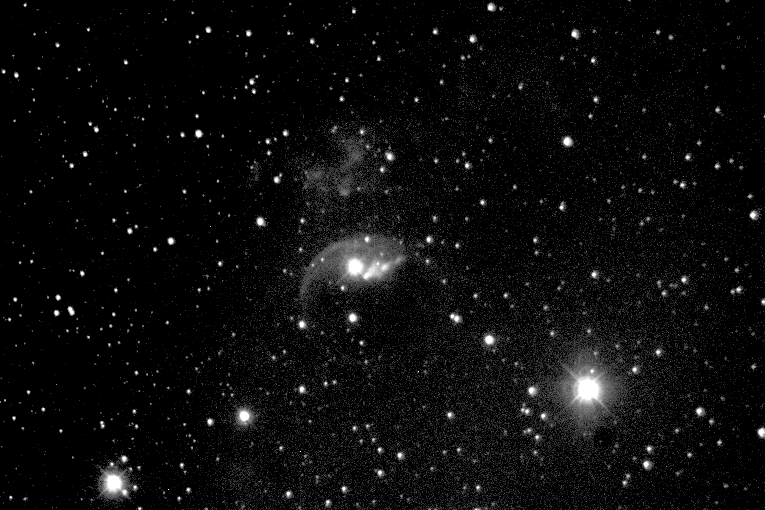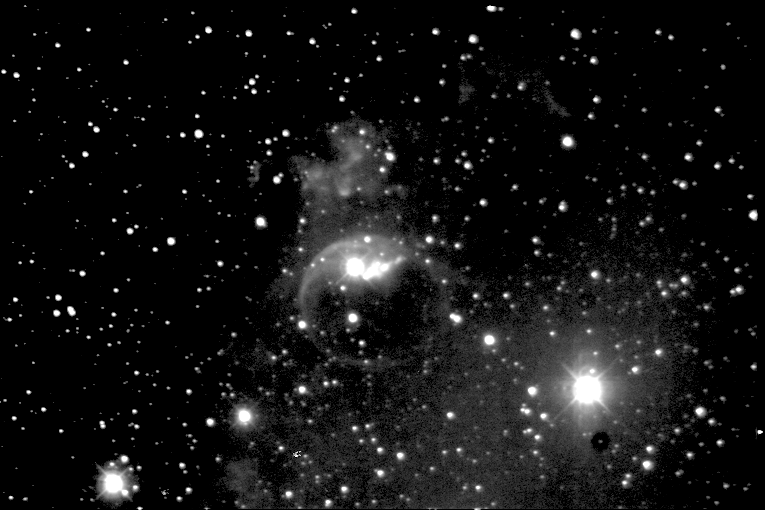

How to compose frames to get more deeper and precise image.
Bubble nebula NGC 7635 is a HII ionized region in Cassiopeia.
A sample data are available as munipack-data-bubble.tar.gz. Use commands
$ cd /tmp $ tar zxf munipack-data-bubble.tar.gz $ cd munipack-data-bubble/
to unpack it to a desired directory. We will assume that the sample data are unpacked to /tmp directory as /tmp/munipack-data-bubble.
Prepare corrected data as is described in Photometric Corrections Tutorial. Flat-fields are not available.
$ munipack dark d120_*.fits $ munipack phcorr -gain 2.3 -dark dark.fits ngc7635_0*.fits
Results will saved in files with suffix _proc.fits.
Both precise astrometry and photometry of all frames is necessary to compose ones together. The astrometry gives a mutual transformation of pixels on images against to a world reference frame (usually represented by spherical coordinates). The relative (frame to frame) transformation can be also used.
$ munipack find ngc7635_0*_proc.fits $ munipack aphot ngc7635_0*_proc.fits $ munipack cone -r 0.1 350.20 61.20 $ munipack astrometry ngc7635_0*_proc.fits
The calibrated images can be easy used to create of a frame:
$ munipack kombine -o bubble.fits ngc7635_0*_proc.fits
The example contains 19 frames each 120 sec. The composed frame is an equivalent of total exposure time 2280 seconds.


These images nicely reveals the Poisson's noise nature. Because dispersion of the noise is square of detected photons and its relative error the reciprocal square, frames shows more details and less noise.
Kombine action can be also used for:
Manuals: Kombine, Astrometry, Aperture Photometry, Photometric corrections. kombitut.sh is a bash script summarizing of this tutorial.
Tutorial: Mosaic